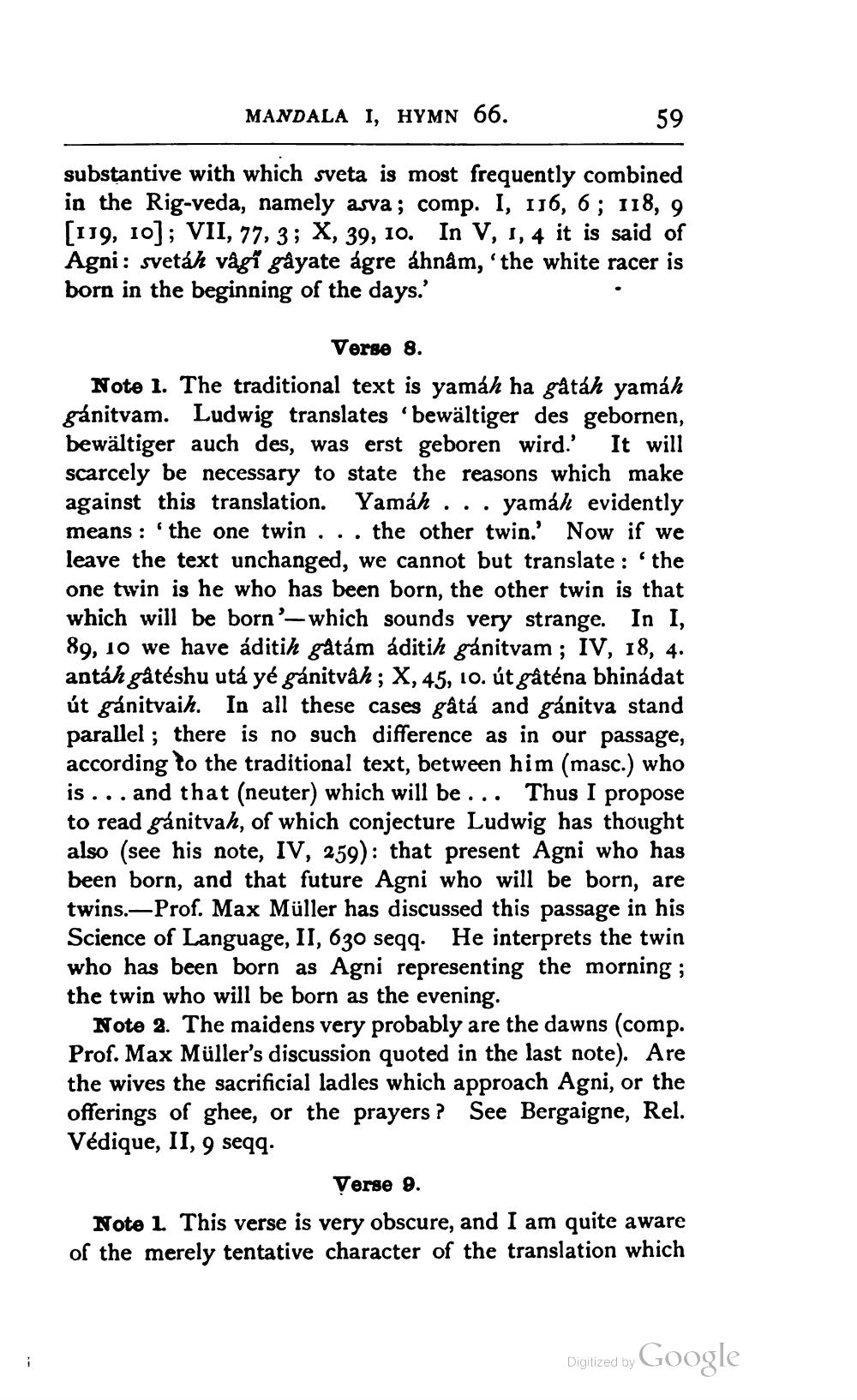________________
MANDALA I, HYMN 66.
substantive with which sveta is most frequently combined in the Rig-veda, namely asva; comp. I, 116, 6; 118, 9 [119, 10); VII, 77, 3; X, 39, 10. In V, 1, 4 it is said of Agni: svetáh vågî gâyate ágre áhnàm, 'the white racer is born in the beginning of the days.'
Verse 8. Note 1. The traditional text is yamáh ha gåtáh yamah ganitvam. Ludwig translates 'bewältiger des gebornen, bewältiger auch des, was erst geboren wird.' It will scarcely be necessary to state the reasons which make against this translation. Yamáh ... yamáh evidently means : 'the one twin ... the other twin.' Now if we leave the text unchanged, we cannot but translate : 'the one twin is he who has been born, the other twin is that which will be born'- which sounds very strange. In I, 89, 10 we have aditih gåtám áditih gánitvam ; IV, 18, 4. antáh gåtéshu utk yé gánitvåh; X, 45, 10. út gâténa bhinádat út gánitvaih. In all these cases gâtá and gánitva stand parallel ; there is no such difference as in our passage, according to the traditional text, between him (masc.) who is ... and that (neuter) which will be ... Thus I propose to read gánitvah, of which conjecture Ludwig has thought also (see his note, IV, 259): that present Agni who has been born, and that future Agni who will be born, are twins.-Prof. Max Müller has discussed this passage in his Science of Language, II, 630 seqq. He interprets the twin who has been born as Agni representing the morning ; the twin who will be born as the evening.
Note 2. The maidens very probably are the dawns (comp. Prof. Max Müller's discussion quoted in the last note). Are the wives the sacrificial ladles which approach Agni, or the offerings of ghee, or the prayers ? See Bergaigne, Rel. Védique, II, 9 seqq.
Verse 9. Note 1 This verse is very obscure, and I am quite aware of the merely tentative character of the translation which
Digitized by Google




